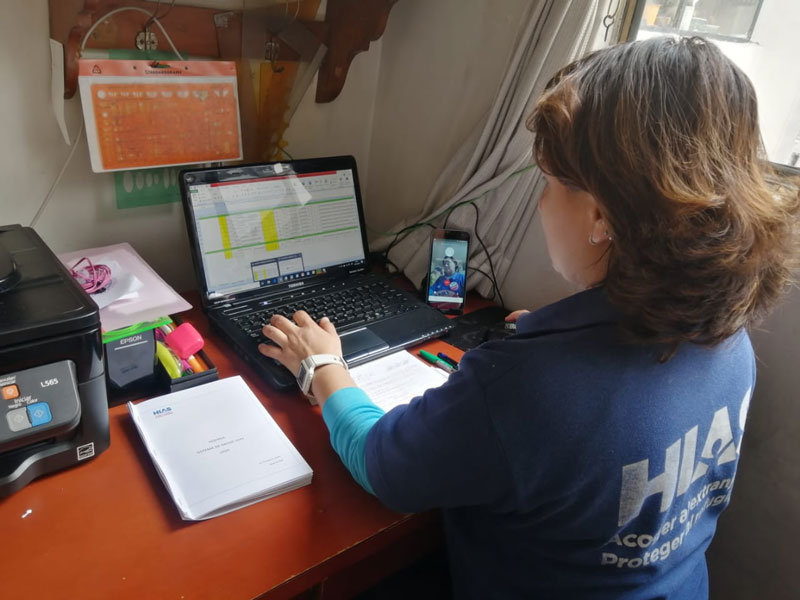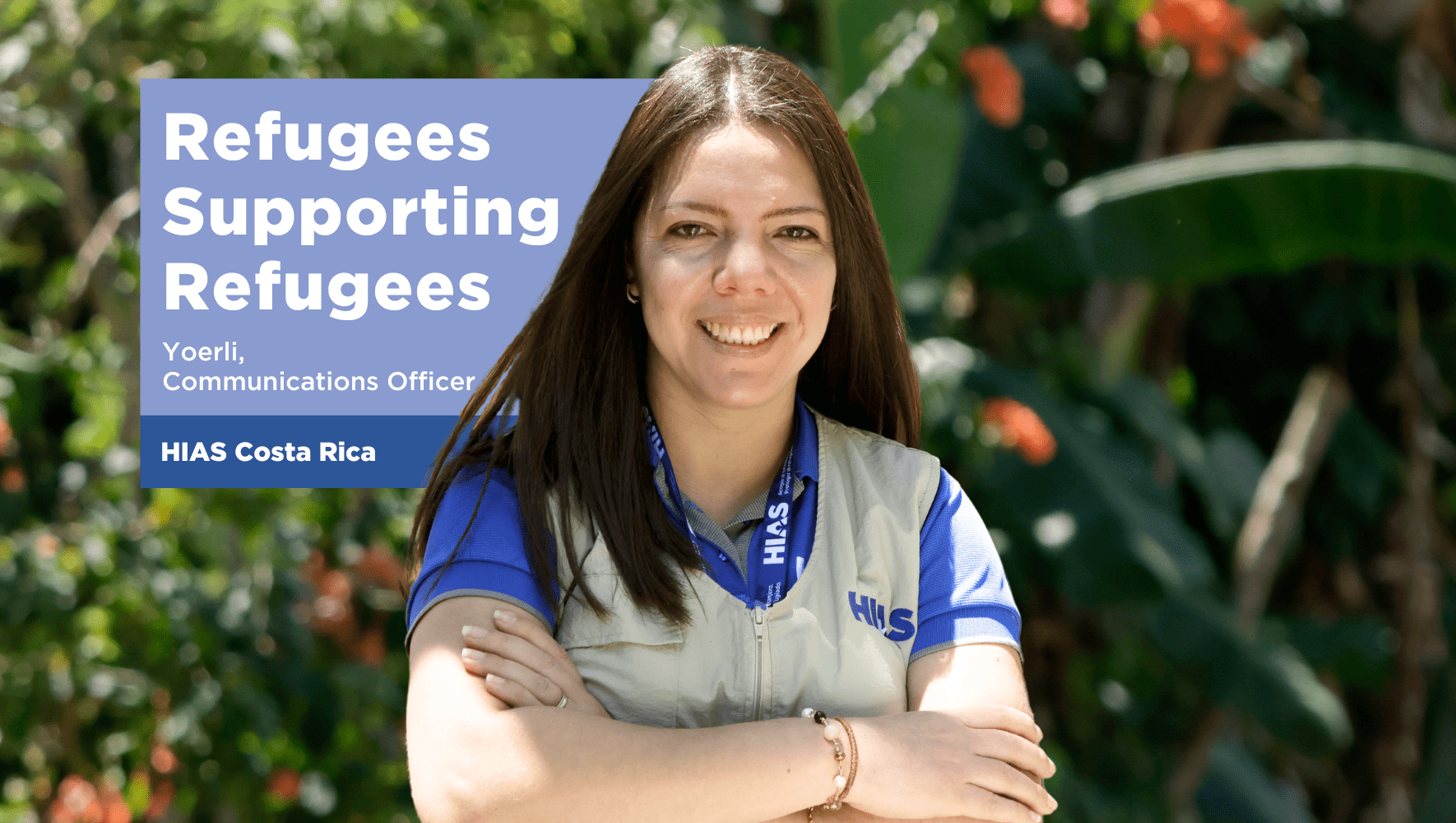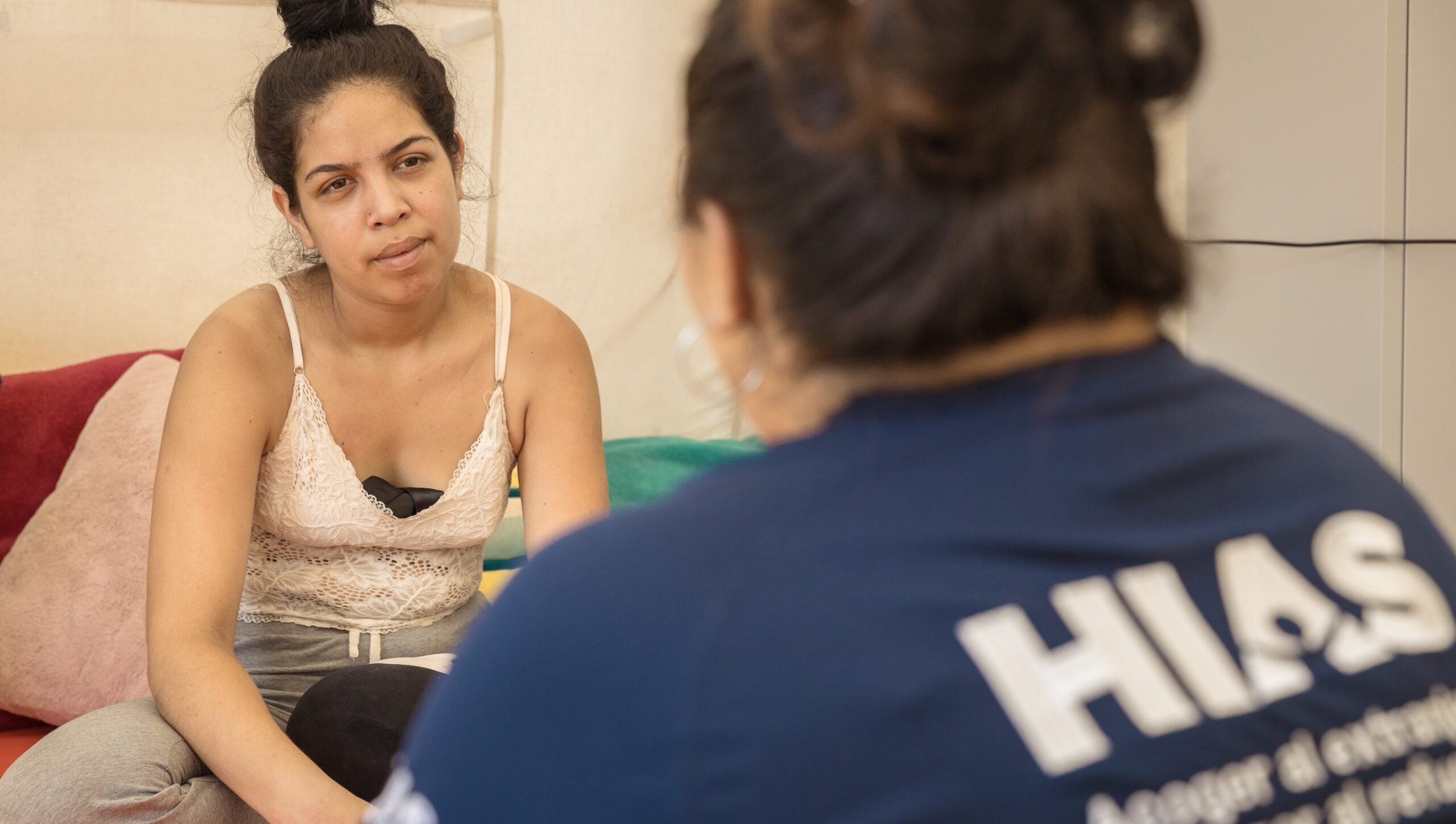Taking the Lead in Emergency Assistance
Jul 07, 2020

A HIAS staffer in Ecuador gets in touch with clients, using different platforms to provide services.
(HIAS Ecuador)
Across the world, HIAS has responded to the COVID-19 pandemic to protect refugees facing emergencies like lack of access to food, potable water, housing, healthcare, and education. We must ensure that refugees’ basic needs are covered, so we have deployed our resources to enhance — and in some cases start — interventions to deliver cash and voucher assistance.
Cash and voucher assistance (CVA) is among the best ways to deliver emergency assistance. By letting refugees decide and prioritize their own spending, this form of assistance promotes resilience, but CVA is a huge undertaking, and HIAS has had to rapidly create systems to deliver aid on time and in a safe manner amid the pandemic.
In February and March 2020, most of the countries we serve saw their first cases of COVID-19. HIAS country offices started to assess information related to the immediate needs of refugees, including possible CVA delivery channels, market disruptions, risks related to aid distribution, and coordination with other organizations and local governments. We designed a special protection assessment tool to identify new risks related to the COVID-19 pandemic in order to assist the most vulnerable populations.
We then started working with local banks to facilitate the distribution of cash through vouchers. Our country offices started negotiations with supermarkets and local stores to guarantee access to products and services.
Remote service delivery was a change for HIAS and its clients since, prior to COVID, service delivery was almost exclusively in-person. We increased our use of social networks to make direct contact with clients, assuring that information delivery was clear and that refugees had the opportunity to provide feedback. We used the platforms our clients were most comfortable with — WhatsApp, texting, phone calls, email — so that we could be there for their questions and to support them as needed.
In Ecuador, for instance, in just one month, HIAS delivered multipurpose cash assistance and food vouchers for more than 3,000 families and created a hotline so our clients could contact us easily. We also worked with two banks to develop products that allow refugees to withdraw money from ATMs. In Venezuela, more than 200 women survivors of gender-based violence have received either cash or voucher assistance to cover their basic needs. In Peru, since the pandemic started about 300 cash transfers have been delivered to families daily.
Emergency funds can have an immediate effect on refugees when they are in a difficult place. Alicia* is a Venezuelan single mother of three who came to Guayaquil, Ecuador's second-largest and most-affected city, eight months ago. Before the pandemic, she worked as a kitchen assistant in a restaurant. She lost that job when COVID-19 hit and she was unable to buy food or pay rent.
Alicia was desperate, seeing that her kids could not get enough to eat, so she called HIAS. After talking with a caseworker, she was given a code that could be used to withdraw money from an ATM. Alicia said the cash allowed her to afford food, part of her rent, and masks to help protect her family. She also noted that the process was easy and that she felt safe.
We are always looking out for the safety of our clients. In Kenya, we are using mobile money transfers and prepaid bank cards, so vulnerable clients won’t be endangered by having to commute to the office to get their money.
In countries such as Panama, Costa Rica, and Israel, where HIAS typically was not managing a cash and voucher assistance intervention, more than 60 percent of our clients needed such aid. HIAS started to raise emergency funding and established emergency CVA interventions that helped more than 200 households. In Israel, the risk of eviction for HIAS clients increased, since most of them lost their jobs. We are complementing the efforts of local partners delivering humanitarian aid so that clients can cover their basic needs.
Despite our efforts, we know that this aid is not enough. Nevertheless, HIAS is committed to responding and protecting refugees, continuing our emergency response, and looking for strategies that allow us to reach more clients and promote remote and safe service delivery to support refugees and vulnerable migrants during the pandemic.
*Pseudonyms used for clients’ protection.


